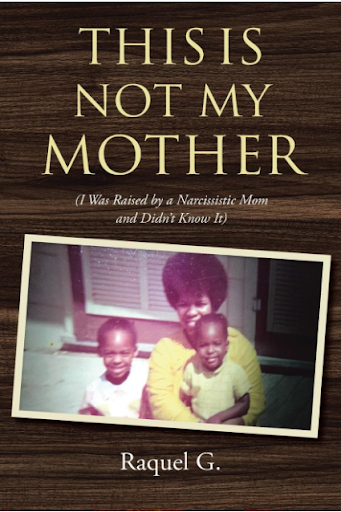What if the person you needed most was the one who made you doubt yourself?
Every child longs for the love, protection, and acceptance of a parent. Many receive it unconditionally. But for some, the parent they depend on becomes the source of deep emotional harm. Narcissistic parents can inflict wounds not with their hands, but with their words, their silence, and their control. They manipulate feelings, undermine confidence, and leave behind an anxiety that shadows adulthood.
This is Raquel’s reality. In her memoir, This Is Not My Mother, she recounts growing up with a mother whose behavior was far from nurturing. Her mother’s approval was rare, her words were cutting, and her love came with impossible conditions. Instead of encouragement, Raquel was told she would never amount to anything—trapped in a cycle of self-doubt that felt unbreakable.
When Love Comes with Conditions
Some children grow up in homes filled with warmth and safety. Others learn early that love can be unpredictable, tangled in expectations they can never quite meet.
In This Is Not My Mother, Raquel shares how her childhood was shaped by criticism and manipulation. Her mother’s sharp words and scarce affection created an environment where she felt small and unseen. The damage wasn’t just in what was said, but in what was withheld—empathy, security, and unconditional acceptance.
The Turning Point
Healing begins when you recognize that the hurt was never your fault. Calling it what it is—narcissistic abuse—is the first step in reclaiming your peace. From there, recovery is built on setting boundaries without guilt, surrounding yourself with people who value you, and speaking to yourself with the kindness you always deserved.
For many who grew up in such households, the scars remain long into adulthood. The anxiety, the second-guessing, the instinct to diminish yourself—these patterns are hard to unlearn. But they can be replaced with self-trust, self-respect, and an unshakable sense of worth.
Breaking the Silence
Stories like Raquel’s matter because silence only deepens the damage. By sharing her truth, she offers validation to others living under the weight of maternal narcissism: you are not weak, you are not alone, and you are not defined by the treatment you endured.
No one should have to question whether they are worthy of love. If Raquel’s story feels familiar, know that healing is possible. This Is Not My Mother is more than a memoir—it’s a lifeline for anyone seeking to understand, confront, and move beyond the pain of a narcissistic parent.
Your past may have shaped you, but it does not have to define you. If you are ready to begin your own journey toward freedom, let Raquel’s story be your companion.
Read This Is Not My Mother on Amazon and take the first step toward reclaiming your voice.

